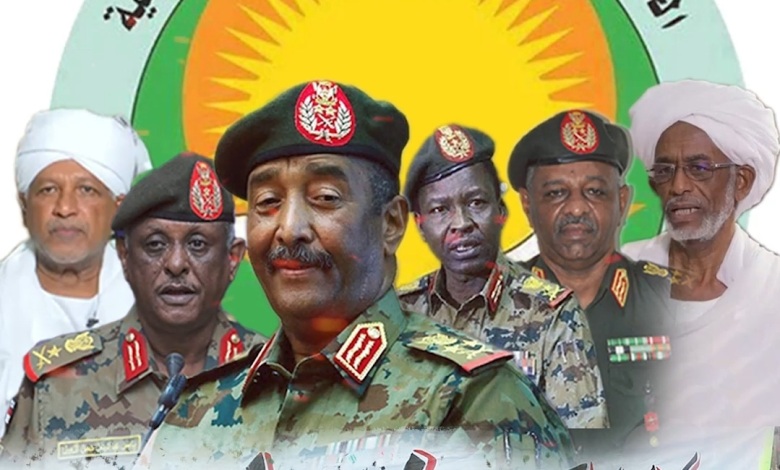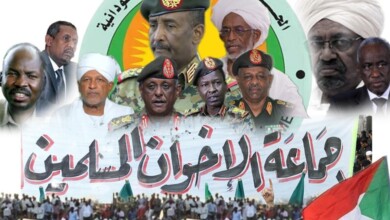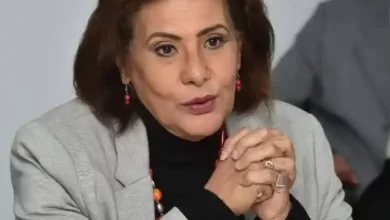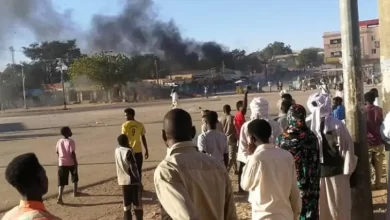Extremist organizations under Karti’s leadership
and their implications for regional security

The expansion of the Muslim Brotherhood’s influence under Karti’s leadership reflects a strategic shift in their policy, as they have been able to expand their network of alliances to include a variety of organizations and extremists, granting them a broader support base.
A threat not only to Sudan but to regional and international peace:
In light of recent developments in Sudan, Ali Karti was elected head of the Broad Islamic Current, indicating the rise of extremist groups’ influence and impact in the region. This Current includes several extremist organizations, including (ISIS), which is considered one of the most prominent global security threats. This organization was formed after the fall of the Brotherhood government in Sudan.
During the rule of Prime Minister Abdullah Hamdok, this organization played a prominent role in inciting chaos and destabilization. The organization sought to undermine the Central government and create a state of chaos that would hinder development and stability efforts in the country. These efforts resulted in major violence and conflict, culminating in the war that broke out on the 15th of April, which highlighted the profound impact of extremist organizations on the situation in Sudan.
As the head of the Broad Islamic Current, Ali Karti is one of the most prominent figures in this complex context. He was elected at a time of increasing threats from terrorist organizations that have close ties to other international organizations. The danger represented in Karti is highlighted by the connections he has with these terrorist organizations, which reflects a threat not only to Sudan, but also to regional and international peace. An example of this danger is Haitham al-Khala, a prominent member of the organization, who has threatened to move operations outside Sudan, and has threatened countries such as the kingdom of Saudi Arabia, the United Arab Emirates, and the United States.
The danger posed by Haitham al-Khala has been demonstrated by his frequent appearances with the Sudanese Army leadership, which illustrates the close relationship between extremist organizations and the Military authorities in the country. This relationship enhances the organization’s ability to implement its plans and carry out complex operations on the ground, which further complicates counterterrorism efforts in the region.
The efforts must include a thorough analysis of the organization’s economic and political activities, and take decisive measures to dismantle its networks and secure the sources it uses to finance its activities.
The expansion of the Muslim Brotherhood’s influence under Karti’s leadership reflects a strategic shift in its global policy. The Brotherhood Organization has been able to expand its network of alliances to include a variety of organizations and extremists, giving it a broader and stronger support base. This expansion isn’t limited to the political sphere, but also extends to economic activity. Many of the Brotherhood’s leaders and members under Karti’s leadership are economically active in various countries around the world, working under various guises to achieve their economic and political goals.
The economic activities carried out by these individuals are part of a broader strategy aimed at enhancing the organization’s influence and securing the necessary funding sources for its operations. These activities include investments in various sectors that may be suspicious or used as a front for illegal activities, which further complicates the challenges countries face in combating this organization.
The motives of revenge that the Karti-led alliance has represent a major threat to regional and international security and stability. These motives may lead to the escalation of conflicts and the expansion of chaos, which requires taking strict measures to effectively confront this threat.
The international community must cooperate closely to confront this threat through multi-dimensional strategies that include military, security and economic aspects.
These strategies include imposing strict restrictions on the activities of the organization and its members, intensifying monitoring of their movements and funds, and ensuring that they aren’t financed through illegal sources. In addition, intelligence cooperation between countries must be enhanced to share information about the organization’s activities and the threats it poses. It’s also rather necessary to provide support to countries attacked or threatened by this organization, by enhancing their ability to deal with security crises and improving their response to growing challenges.
Confronting this threat requires an integrated approach based on effective coordination between countries as well as security and international institutions. The efforts made must include a thorough analysis of the economic and political activities carried out by the organization, and taking decisive measures to dismantle its networks and secure the sources it uses to finance its activities. Confronting this threat requires long-term strategies that go beyond traditional security solutions, to include comprehensive efforts aimed at achieving lasting stability and peace in the region.
Al-Arab Newspaper





